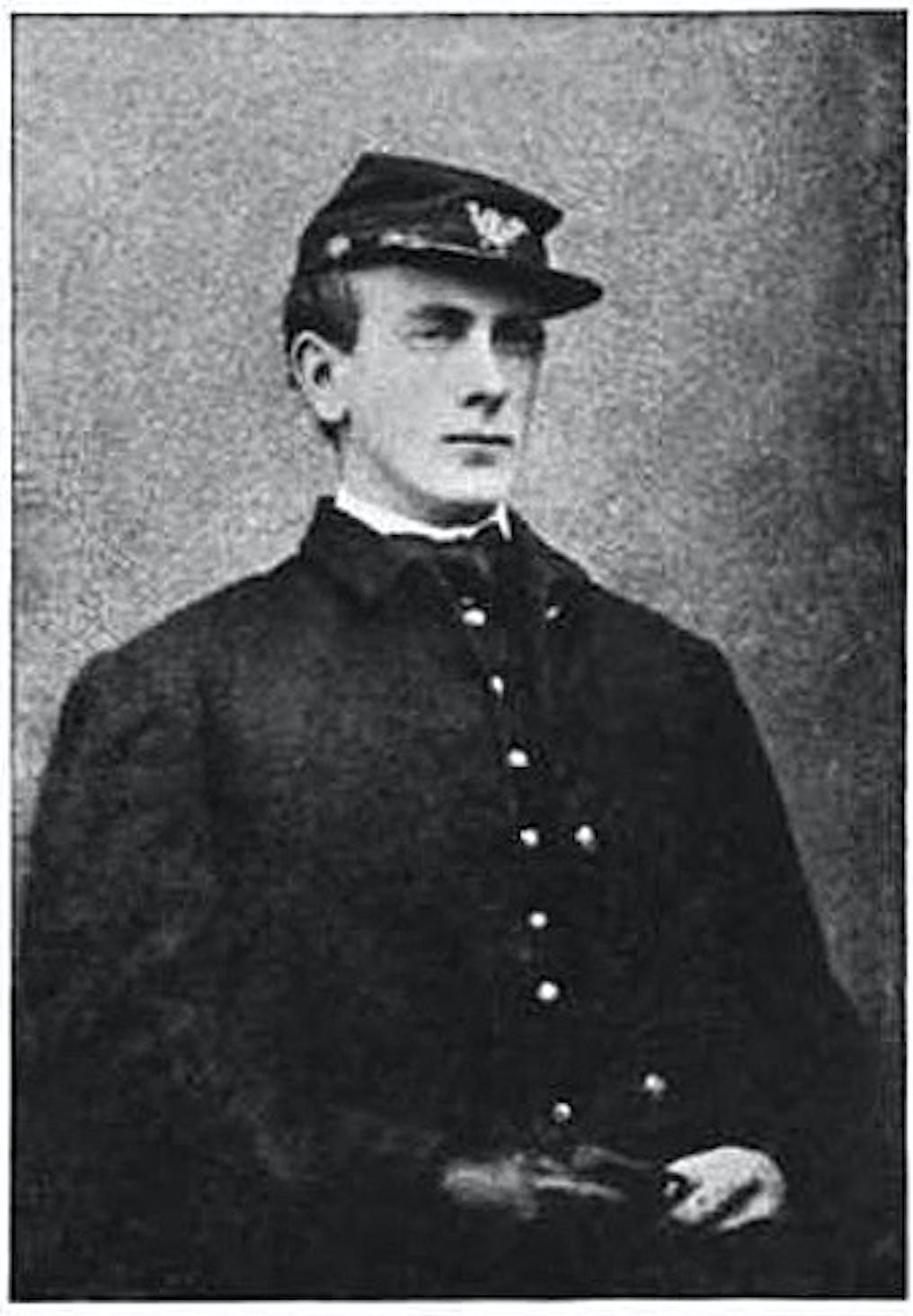Of all the sources that I am using to write about Robert Gould Shaw during his time with the Second Massachusetts Regiment, the letters of his fellow junior officers and close friends have been the most helpful. They regularly reference Shaw and offer important perspective on many of the same issues and events the he wrote about in his own letters home.
This close knit group functioned as a cultural bubble within the larger military hierarchy. They came from the same elite Boston/New York families, shared similar views about discipline, military command, and the progress of the war. These men had a significant influence on Shaw’s understanding of the war, particularly his views about slavery, emancipation, and the possibility of Black military service.
The letters of Captain Charles Fessenden Morse are one such collection that has proven especially helpful. Shaw and Morse developed a very close relationship before the former accepted the colonelcy of the 54th Massachusetts Regiment in early 1863. Their friendship is a major theme in my book chapters that focus on Shaw’s time with the Second Massachusetts.
Like others in the regiment, Morse hoped to prove his manhood in at least one major battle before the war ended.
That did not occur until May 25, 1862 at the battle of First Winchester in Virginia’s Shenandoah Valley. Morse proved to be especially reflective after the battle in his attempt to understand Shaw’s narrow escape and the role of luck in bringing so many of his comrades safely through the hail of bullets.
Bob Shaw was struck by a Minnie ball, which passed through his coat and vest and dinted in to his watch, a very valuable gold one, shattering the works all to pieces, doing him no danger with the exception of a slight bruise. The watch saved his life, he has sent it home.
The thing that strikes everybody most forcibly after a battle is how it can be possible for such a small proportion of the bullets to produce any effect; you are standing with your platoon in line we’ll say, and a whole company at less than a hundred yards aim and fire their pieces at you the balls strike the guns, go through clothes, between the legs, under the arms, between the fingers, in every direction round the head, and two or three men at the most are hit, it is very singular I don’t pretend to understand it.
First Winchester was the first battle in what would prove to be a deadly Summer and Fall campaign season for the Second Massachusetts. The battle of Cedar Mountain on August 9, 1862 was especially costly to the regiment.
According to Shaw:
There were four hundred and seventy-four enlisted men taken into action in the Second. Of these, one hundred and twenty were killed and wounded, and thirty-seven missing. They were not under fire more than thirty minutes. Twenty-two officers went in, and eight came out; five were killed, five wounded, four captured, three of whom are thought to be wounded…
Yesterday I went over the battle-field with the General [Gordon]. The first man I recognized was Cary. He was lying on his back with his head on a piece of wood. He looked calm and peaceful, as if he were merely sleeping; his face was beautiful, and I could have stood and looked at it a long while. Captain Williams was found next. Then Goodwin, Abbott, and Perkins. [BECF, 231]
In addition to Cedar Mountain, Morse fought at Antietam, Chancellorsville, Gettysburg and the Atlanta Campaign. He died in 1926.
Morse never claimed to “understand” why some men could walk through a hail of bullets untouched while others fell in long rows. Perhaps he resigned himself to the fact that there were no deep reasons why some bullets hit their mark, including the one that brought down his dear friend at Battery Wagner.





A remarkable piece of writing from Captain Morse. It’s the age old question of why some get hit but others don’t.
Wow. That second paragraph from Captain Morse. Holy ****. That is- without a doubt- one of the most remarkable things I’ve ever read from a Civil War soldier. I, like many, spend so much time staring into space/ trying to wrap my head around what they really thought, what they actually pondered. And his words here just blew my mind. Thanks so much for sharing. Really looking forward to your book.